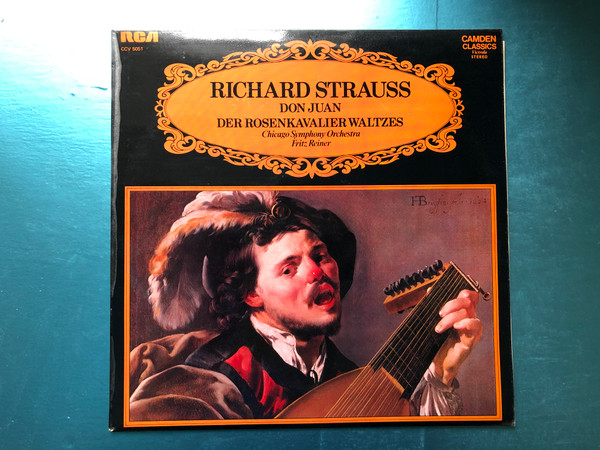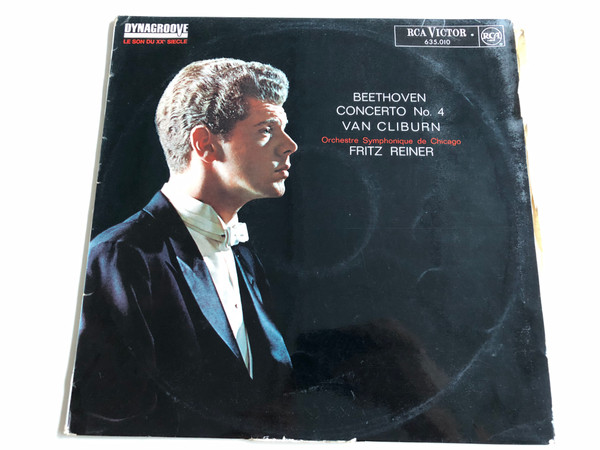Description
Beethoven – Symphony No. 7 In A, Fidelio Overture / Chicago Symphony Orchestra, Fritz Reiner / Camden Classics Victrola / RCA LP Stereo
CCV 5026
The Symphony No. 7 in A major, Op. 92, is a symphony in four movements composed by Ludwig van Beethoven between 1811 and 1812, while improving his health in the Bohemian spa town of Teplice. The work is dedicated to Count Moritz von Fries.
At its premiere, Beethoven was noted as remarking that it was one of his best works. The second movement, Allegretto, was the most popular movement and had to be encored. The instant popularity of the Allegretto resulted in its frequent performance separate from the complete symphony.
Fidelio (/fɪˈdeɪljoʊ/; German: [fiˈdeːlio]), originally titled Leonore, oder Der Triumph der ehelichen Liebe (Leonore, or The Triumph of Marital Love), Op. 72, is Ludwig van Beethoven's only opera. The German libretto was originally prepared by Joseph Sonnleithner from the French of Jean-Nicolas Bouilly, with the work premiering at Vienna's Theater an der Wien on 20 November 1805. The following year, Stephan von Breuning helped shorten the work from three acts to two. After further work on the libretto by Georg Friedrich Treitschke, a final version was performed at the Kärntnertortheater on 23 May 1814. By convention, both of the first two versions are referred to as Leonore.
The libretto, with some spoken dialogue, tells how Leonore, disguised as a prison guard named "Fidelio", rescues her husband Florestan from death in a political prison. Bouilly's scenario fits Beethoven's aesthetic and political outlook: a story of personal sacrifice, heroism, and eventual triumph. With its underlying struggle for liberty and justice mirroring contemporary political movements in Europe, such topics are typical of Beethoven's "middle period". Notable moments in the opera include the "Prisoners' Chorus" (O welche Lust—"O what a joy"), an ode to freedom sung by a chorus of political prisoners, Florestan's vision of Leonore come as an angel to rescue him, and the scene in which the rescue finally takes place. The finale celebrates Leonore's bravery with alternating contributions of soloists and chorus.
Tracklist:
| Symphony No.7 In A, Op.92 | |||
| A1 | 1st Movement: Poco Sostenuto: Vivace | ||
| A2 | 2nd Movement: Allegretto | ||
| B1 | 3rd Movement: Presto: Presto Meno Assai: Presto | ||
| B2 | 4th: Allegro Con Brio | ||
| B3 | Fidelio Overture, Op. 72b |
- Composed By – Beethoven
- Conductor – Fritz Reiner
- Cover [Ascribed To] – David Teniers II
- Orchestra – Chicago Symphony Orchestra






















